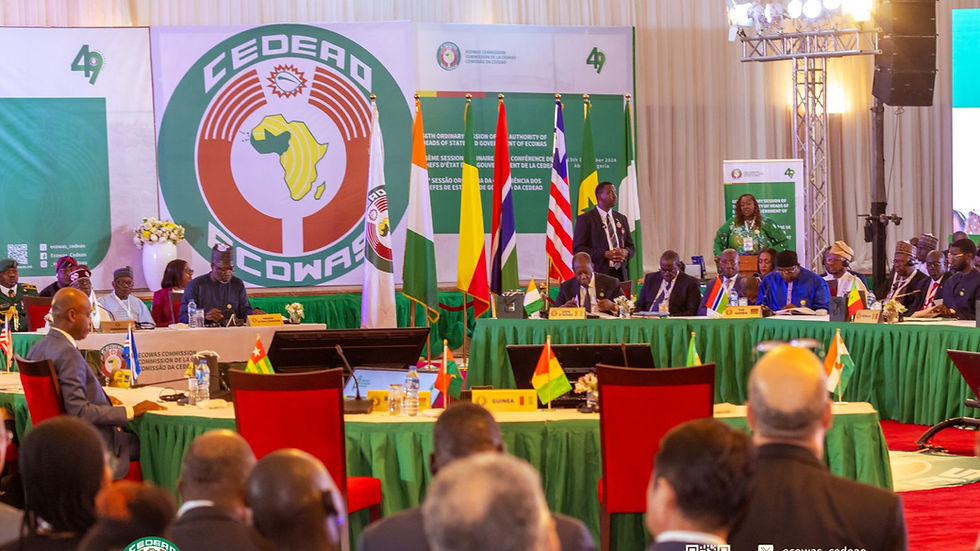Saying Thank You to Yaw Akrasi- Sarpong as He Retires from Government Service
- WADPN

- Jan 9, 2017
- 4 min read

On the 28th of November, 2016 while checking on some colleagues I learnt of Mr Yaw Akrasi-Sarpong’s retirement from active government service. I received the news with mixed feelings as I wished he could continue for some reasons. First is how he was able to influence his government perspectives on drug control especially by is repeated oratory of ‘drug use is a public health issue and not for the criminal justice system’. The second reason is that the work is still far from finish and people like him are really needed in that sector of governance. Yaw Akrasi-Sarpong became the Executive Secretary of the Narcotics Control Board (NACOB) of Ghana on the 24th of July, 2009 and served till the 28th of November,2016, an agency responsible for the formulation and enforcement of narcotic laws in Ghana. My first meeting with him was in Accra on 26th of April, 2013 during a country mission of the West Africa Commission on Drugs led by Justice Thompson Bankole. As we interacted, I waited to hear the usual rhetoric you get from narcotic chiefs about seizures, arrests and size of cannabis farms they have been able to destroy. Of course, these are the key success points drug law enforcement agents often brag about as an indicator of fighting and ‘winning the war on drugs’. But I was taken aback when Yaw after recounting some of the challenges of the agency said “I think it is time for the West Africa region to have an open conversation about cannabis and how best to handle it”. “An open conversation?” I asked him again and he replied in affirmation.
This is atypical of narcotic chiefs in the region and I have indeed interacted with many. Almost everyone belief in repression and that we can fight our way out of the drug problem with guns, imprisonments, drug eradication and the likes. I pressed further to really know why he is asking for an open conversation in a region where lots of his other colleagues rarely engage with civil society organizations talk more of being ready to embrace a new policy approach on the subject matter. He responded that “it is near impossible to eradicate cannabis in West Africa and how many people do you want to keep throwing into jail. We have tried this for years now and nothing has changed”. He acknowledged that the war on drugs has mostly been on drug users. With that statement I saw a man courageous enough to evaluate his own policy and also willing to do things differently for best possible result.
The courage to evaluate our drug policy using available evidence is one thing that is lacking in drug control responses. We rather find it easy to base our response on ideologies and personal sentiments rather than critically assessing what is working and what is not. It therefore did not come as a surprise in 2016 when Ghana proposed to decriminalize all drug use through a new narcotics commission bill which has passed the second reading in the parliament. I know the civil society worked hard on this bill but it wouldn’t have materialized if Yaw had not lent his voice and support. I sincerely hope the new administration of president Nana Akufo-Addo will ensure this bill see the light of the day. It is important to know that this bill is not for Yaw or past administration but about the Ghanaian people, especially the most vulnerable and already marginalized. It is about correcting social injustices and providing needed public healthcare services for those who need it. Passing this bill will make Ghana the first African country to decriminalize drug use. It will set a good example for others to begin to reflect on the failure of over reliance on the criminal justice system in addressing drug use in our communities.
I wish Yaw Akrasi-Sarpong the best in his retirement. I know you are far from getting tired and will continue to speak up on this issue. I am also glad we have someone like Mr Morie Lengor, Assistant Inspector General of Police, Sierra Leone who is also speaking up on the needed drug policy reform in the region. In his words “The world drug problem is slowly becoming quick sand; the more we wriggle, the deeper we sink and it seems we are running out of ideas for the best solution. So we have to be brutally frank and put all options on the table for discussion including the palatable and the non-palatable; the thinkable and the unthinkable” (Read more of his comment here https://wadpn.blogspot.com.ng/2016/02/call-for-legalization-of-all-drugs-in.html). I am very sure there are more people like Yaw and Lengor in other parts of Africa and they really need to speak up to their governments and for those representing the “African group” in Vienna to know that there are State officials who are indeed in touch with reality and eager to move forward rather than staying put on the rhetoric of “war on drugs”, and “Drug free world”.
Once again, Congratulations Mr Akrasi-Sarpong for a fruitful government service.
Adeolu Ogunrombi is the regional Coordinator of the West Africa Drug Policy Network and a Commissioner of the West Africa Commission onDrugs




Comments